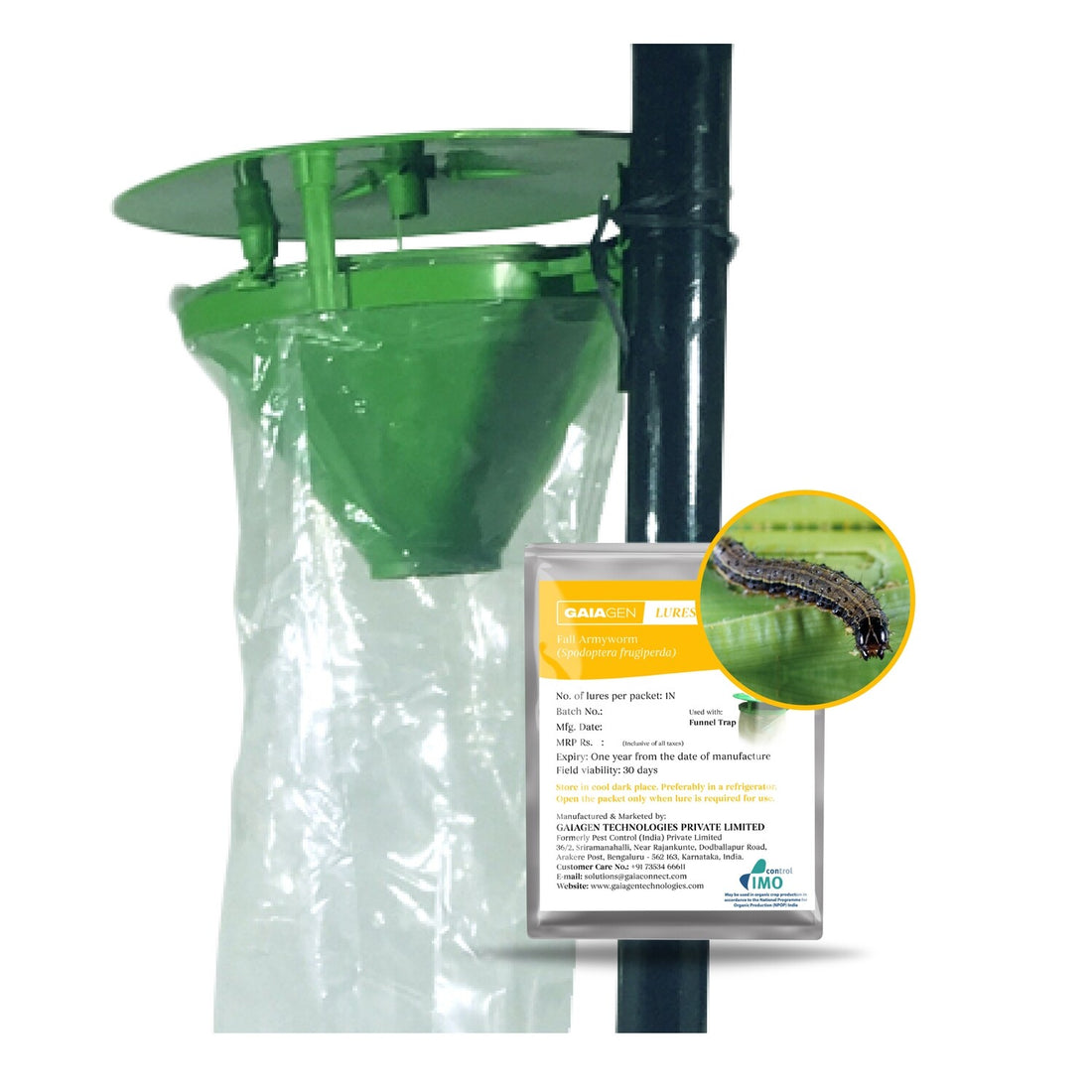
Strategic Lure Choices for Pest Management
Share
Introduction
Visual lures use light, bright colors, and shapes to attract pests. Chemical attractants or pheromones may attract only a specific sex. Insect traps are sometimes used in pest management programs instead of pesticides but are more often used to look at seasonal and distributional patterns of pest occurrence.

Example of lure
Fruit Flies and Melon Lure
Fruit flies are a common pest in agricultural settings, especially in fruit and vegetable crops. To lure fruit flies away from the crops, a common lure used is a melon lure. This lure is designed to mimic the scent of ripe fruits, attracting fruit flies and diverting them from the actual crops.

Mosquitoes and CO2 Lure
Mosquitoes are a significant pest that can transmit diseases. To control mosquito populations, CO2 lures are often used. These lures release carbon dioxide, mimicking the breath of humans or animals, which attracts mosquitoes towards the trap instead of biting humans.

Weevils and Pheromone Lure
Weevils are known to infest stored grains and crops. Pheromone lures, which contain chemicals that mimic the insects' natural pheromones, are effective in attracting weevils towards traps, reducing their populations and protecting the stored crops.

Aphids and Yellow Sticky Traps
Aphids are common pests in many crops, feeding on plant sap and causing damage. Yellow sticky traps are used to attract and capture aphids. The bright yellow color attracts aphids, and the sticky surface prevents them from moving to the crops.

Moths and Sex Pheromone Lures
Moths can cause damage to crops by laying eggs that turn into larvae feeding on the plants. Sex pheromone lures are used to attract male moths, disrupting their mating patterns and reducing the chances of egg- laying, thus controlling the population.

Conclusion
Selecting the right lure involves understanding the behavior and preferences of the target pest species. By using specific lures tailored to the pest's sensory cues, such as smell, sight, or behavior, it becomes easier to attract and control them effectively while minimizing damage to the crops.
